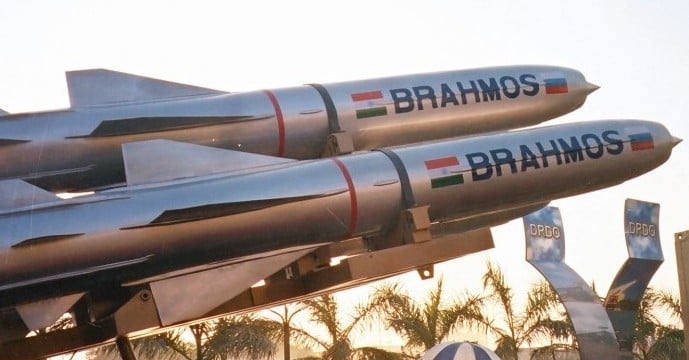Navy Chief Admiral R Hari Kumar announced on February 26th that the BrahMos supersonic cruise missile would now serve as the primary weapon for the Indian Navy, replacing older missile systems sourced from other countries.
In an interview with ANI, Admiral Kumar emphasized the evolution and potency of the BrahMos missile, highlighting its enhanced range, capabilities, and lethality. He stated, “BrahMos will be our primary weapon now as the surface-to-surface missile weapon. Probably the Air Force and the air fighters also will have that as the primary air-to-surface weapon.”
The Navy chief’s remarks came in the wake of the Cabinet Committee on Security’s approval of over 200 BrahMos missiles and associated equipment, amounting to approximately ₹19,000 crore for the Indian Navy.
Speaking at the Maharashtra MSME Defence Exposition in Moshi, Pimpri-Chinchwad, Admiral Kumar underscored India’s self-reliance in producing the BrahMos missile and praised its strategic significance.

He highlighted the swift replacement of older missile systems with BrahMos, emphasizing the quick installation and availability of spares, which significantly contribute to India’s defence capabilities.
Admiral Kumar emphasized the critical role of maritime security agencies like the Indian Navy and Coast Guard in securing safe seas as India aims to become the third-largest economy globally.
He noted the growing use of sensitive technologies by non-state and rogue actors, citing concerns regarding weapons of mass destruction such as missiles and drones.
With 88% of the country’s oil imports arriving via sea routes, Admiral Kumar stressed the importance of maritime security and protecting India’s exclusive economic zone for resources and wealth.
He affirmed the Indian Navy’s commitment to safeguarding global trade routes and India’s maritime interests, highlighting operations against drones and piracy in the Arabian Sea.
In line with the ‘Atma Nirbhar Bharat’ (Self-Reliant India) initiative, Admiral Kumar stressed the strategic imperative of a self-reliant defence industry, warning against dependence on external sources for defence equipment, which could compromise national security and growth.













